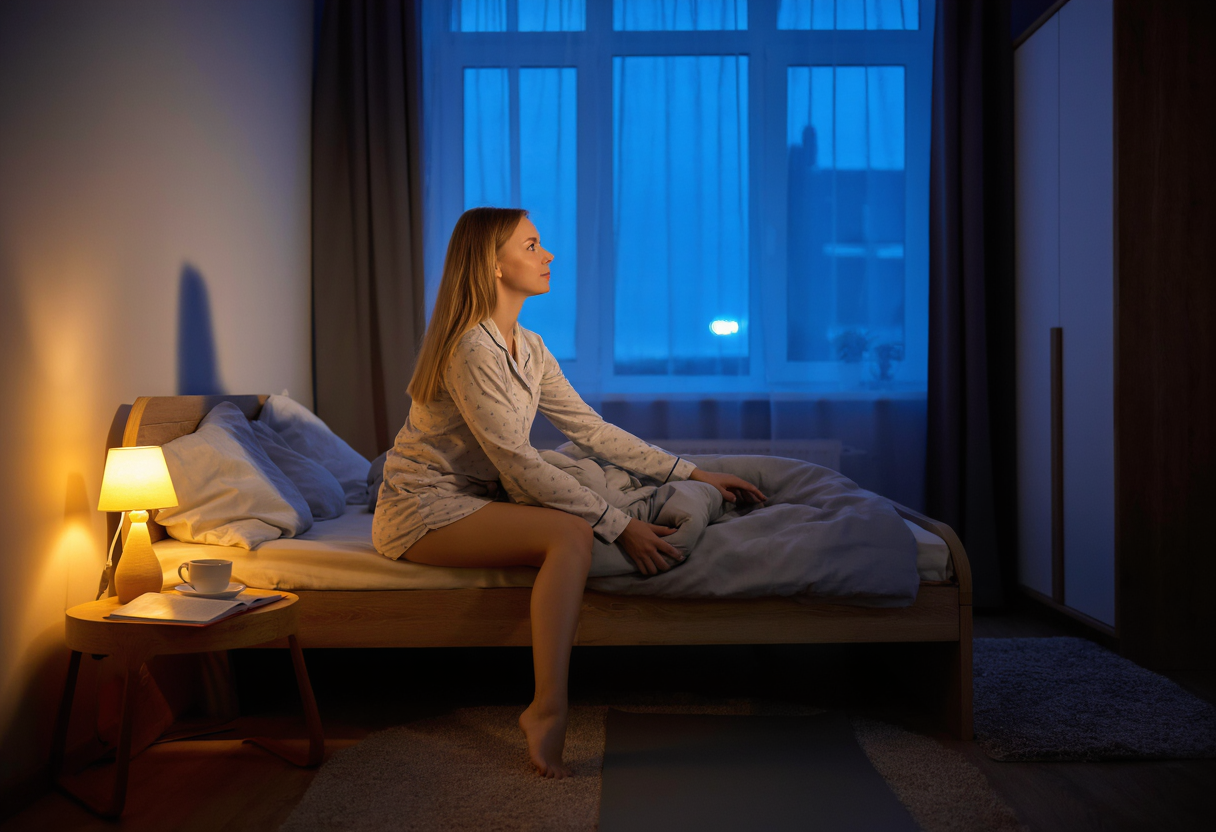Unlock the Secrets of Sleep Improvement for Stress: 7 Tips to Better Sleep
Stress can severely impact your sleep quality, leading to fatigue and decreased productivity. This article reveals seven essential tips for sleep improvement for stress, focusing on soothing routines, mindful practices, and environmental tweaks. By integrating these tips into your daily life, you can cultivate a more peaceful mindset, reduce anxiety, and experience a deeper, more restorative sleep experience. Discover how to unlock the secrets of sleep improvement for stress relief starting tonight.
Identifying the Impact of Stress on Sleep Quality
The impact of stress on sleep quality cannot be underestimated, as countless individuals struggle with sleepless nights due to stress-related issues. Recognizing how stress manifests in sleep disturbances is crucial for effective sleep improvement for stress. Increased adrenaline and cortisol levels can lead to sleeplessness, making it essential to develop strategies that address these stressors. Understanding one's personal stress triggers can empower individuals to take the necessary steps toward enhancing their sleep quality. Furthermore, this introspection helps individuals create tailored plans aimed at achieving better sleep. By identifying these stress-related patterns, one can work toward effective solutions that mitigate the adverse effects of stress on sleep.
Creating Soothing Routines for Effective Sleep Improvement for Stress
Creating soothing routines is instrumental in sleep improvement for stress. Establishing a pre-sleep ritual can transition the mind and body into a restful state. Activities like taking a warm bath, engaging in light reading, or practicing relaxation techniques contribute significantly to creating a sleep-friendly atmosphere. Also, incorporating calming scents, such as lavender, can enhance relaxation and signal to the body that it’s time to wind down. Additionally, practicing gratitude or mindfulness through journaling can provide emotional clarity, enabling a more relaxed mindset. These soothing routines collectively create a foundation for improved sleep quality, alleviating the impact of stress on restful nights. Emphasizing personal preference in these routines ensures an individual approach to sleep improvement for stress relief.
The Power of Mindfulness: A Key Element in Sleep Improvement for Stress
Mindfulness has emerged as a significant ally in sleep improvement for stress relief. By focusing on the present moment and letting go of ruminative thoughts, individuals can prepare their minds for a peaceful night's sleep. Techniques such as mindful breathing and meditation, when integrated into evening routines, foster relaxation and diminish anxiety. Furthermore, by learning to recognize triggering thoughts and feelings, individuals can develop healthier responses, contributing to long-term stress management. The power of mindfulness extends beyond just immediate stress relief; it builds resilience that can lead to overall sleep improvement over time. Embracing mindfulness practices can transform one’s relationship with stress and sleep, creating a cyclical effect of better rest and reduced anxiety.
Essential Environmental Tweaks for Sleep Improvement for Stress
Making essential environmental tweaks can dramatically influence sleep improvement for stress. A well-designed sleep environment, including the right mattress, optimal temperature, and minimal distractions, significantly promotes restful sleep. Individuals should experiment with different lighting options, ensuring that their sleeping space is conducive to relaxation. Furthermore, reducing noise levels with sound machines or earplugs can shield against disturbances that interrupt sleep cycles. The incorporation of comfortable bedding tailored to personal preferences also ensures a more pleasant sleeping experience. Each of these environmental adjustments collectively contributes to creating a sanctuary for sleep, alleviating the burdens of stress-driven sleeplessness.
Consulting Resources for Better Sleep Improvement for Stress
Accessing resources designed for better sleep improvement for stress can significantly enhance individual efforts. Numerous books and online courses are available that focus on sleep hygiene, mindfulness, and relaxation techniques targeted at reducing stress. Furthermore, communities and therapy groups specializing in stress management often provide peer support and encouragement that can be invaluable. Utilizing these resources enables individuals to learn and apply proven strategies for effective sleep improvement. Additionally, consulting professionals can yield personalized insights and recommendations that address specific needs. Awareness of accessible resources can empower individuals on their path to achieving restful nights.
Conclusion: Embarking on Your Journey to Sleep Improvement for Stress
Embarking on a journey toward sleep improvement for stress is an empowering act. By integrating various strategies into daily life, individuals can foster healthier sleep patterns while managing stress more effectively. From recognizing the impact of stress on sleep quality to cultivating soothing routines and accessing resources, each step taken contributes to improved overall well-being. This journey leads to more restful nights and enhanced productivity during the day. It’s essential to approach sleep improvement for stress with a personalized plan tailored to individual lifestyles. Ultimately, the pursuit of better sleep is within reach for anyone willing to commit to change.
